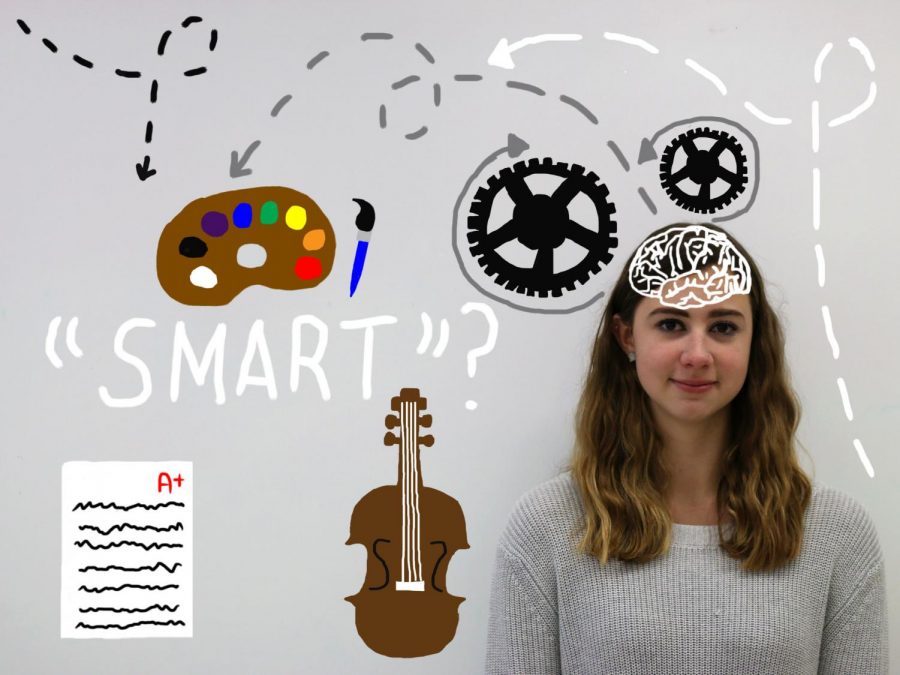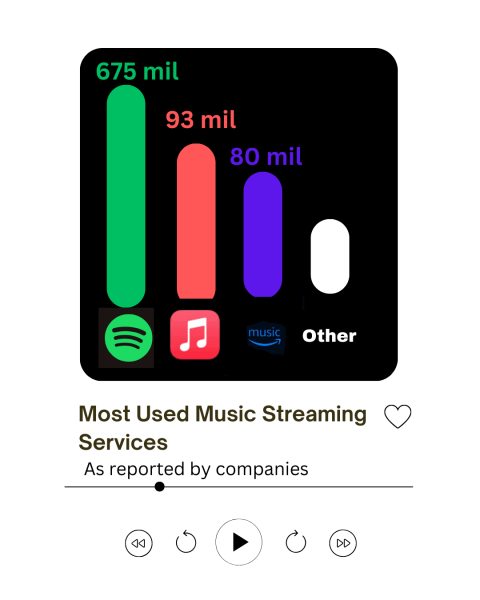The subjectivity of “smart”
“Smart,” a term commonly used based on grades, GPA and test scores, goes beyond the realm of academics; it can also convey students’ talents and passions outside of school.
Most adjectives are pretty plain to see; if I called something “big” or “blue” or “square,” there’s not too much to debate. The word “smart,” however, has become a completely objective term where it should be subjective. Instead of varying from person to person, society as a whole has decided that being smart, or brilliant, is synonymous with a high GPA and good grades.
“[The academic smart is] what our community values most, it’s what our parents value most, and it is what the education industry–and I know we don’t like to think of it as an industry, but it is–focuses on,” AP European History and World History Honors teacher Mr. Kevin O’Neill said.
However, there are a lot of ways to define “brilliance.”
You might be really great at painting. Perhaps you are an adept mechanic. You could be good at horseback riding or doing makeup or swimming the butterfly stroke, but if you were to tell someone this, “smart” would not be the first word that comes to mind.
I’m here to tell you that I’m sorry about that. I’m sorry that society has told you that if you don’t do well on standardized tests, you won’t do well in life. I’m sorry for every teacher, every peer, every parent who has ever told you that getting good grades is more important than pursuing your passion and finding your place in the world. I’m sorry that you haven’t been told how brilliant you truly are.
Mr. Mike Mansell, a teacher in the Special Services Department, stressed the idea that there are a variety of ways to be brilliant.
“[The kids I teach] are just as intelligent as students in the mainstream education program, but they haven’t always been given the opportunity to show their type of intelligence. Forgive the bluntness, but I don’t give a shit about [a student’s] past. Every single person is capable of greatness; they just need that platform, that outlet, to show it,” Mr. Mansell explained.
Albert Einstein once said, “Everybody is a genius. But if you judge a fish on its ability to climb a tree, it will live its whole life believing that it is stupid.” We have adopted a culture of high achievement, especially academically, effectively placing a “no outlet” sign on every other path aside from a four-year university.
Mr. O’Neill believes that this definition of smart can be traced back to the pressure put on students.
“[It comes] to an ever-larger question about how much pressure we are putting on you guys – is it [the teachers], is it the parents. Where does that end?” Mr. O’Neill said.
A combination of pressure and competitiveness has led to a whole population of students believing that they cannot be successful in life if they do not excel at school. If you don’t take all of the APs and honors classes that you can or score in the upper 30s on your ACT or get an A on that test, how will you ever succeed?
I would be naive to think that my column could change all of this, but that isn’t the point; this is: take that woods class, that graphics class, that cooking class. Explore all of the options that Tech Campus has to offer. Stop stressing so much about taking every single AP course.
Can this idea of being smart ever change? Maybe. I hope so. But the first step starts with you.











